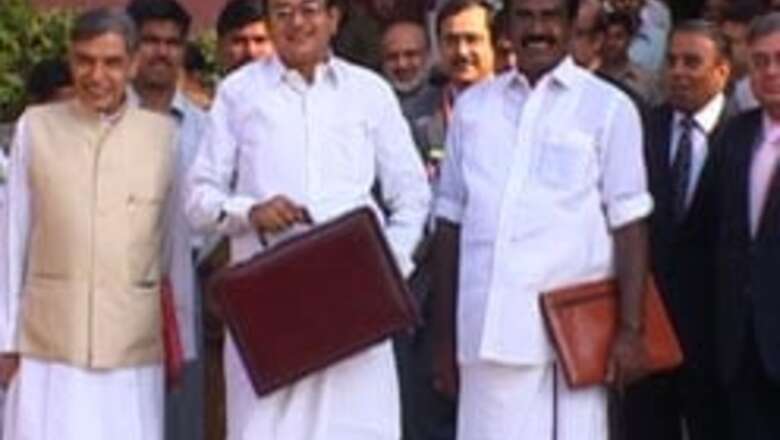
views
New Delhi: Finance Minister P Chidambaram's budget on Wednesday is likely to be directed towards inflation control, promoting foreign investments while taking steps to curb the fiscal deficit and curtailing the free credit flow in the economy.
The new policies are likely to be directed towards promoting individual savings in the banks while discouraging easy credit in the domestic market. It was in this direction, that RBI had hiked its prime lending rates last month. Now in the budget, Chidambaram may come up with policies that will make loans even more expensive.
Chidambaram may announce extending the ban on export of pulses and wheat for another year in his fight against inflation.
The economic survey presented in Lok Sabha on Tuesday hinted upon serious issues that have blocked UPA’s political growth—something that became even more evident after Congress’s defeat in Uttaranchal and Punjab assembly polls on Tuesday.
One major proposal in the budget is a cut in peak duties on cars besides special packages for the manufacturing and services sector. UPA Government is also toying with the idea of banning futures trading in the commodities. However, the Economic Survey has not hinted towards any such move.
Apart from growth and investment promotion measures, Economic Survey has pointed to possible initiatives the Finance Minister may resort to for ensuring 'fiscal prudence' and overhauling the expenditure pattern. Steps in this direction would be in continuation of the 'treasury management' measures initiated by the Finance Minister in his budget in 2006-07.
Towards better utilisation of resources, he may announce the abandonment of Prime Minister's Rojgar Yojana (PMRY). The survey has stated that PMRY was not viable as recovery of loans provided under this scheme was less than 35 percent in last three years.
The continued subsidisation of petroleum products sold through state-owned oil companies has become a major issue with the private companies operating in the hydro-carbons sector. An important balance has to be achieved in pricing of petroleum products sold by state-owned oil and private companies.
Similarly, the food and fertiliser subsidies are likely to change this budget. Economic Survey has called for alternative mechanisms to deliver subsidies. For instance, the fertiliser and agriculture subsidies can be directly given to farmers as a cash subsidy.
Eco survey on inflation
- Expects pressure on prices during this year - Says short supply of staples, high global prices the reason - Demand fed by high growth, foreign inflows, money supply, credit - Impact of duty cuts, dear-money policies to be felt shortly - But inflation will remain unless supply of staples improves
With inputs from agencies




















Comments
0 comment